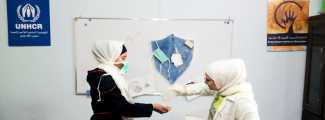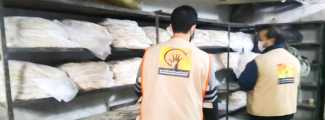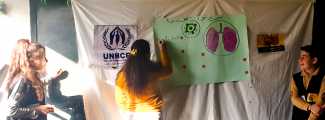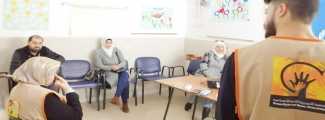Due to the critical conditions the Syrian nation is going through and to raise awareness about the ramifications of COVID-19 and prevention means, the Syrian Society for Social Development conducted awareness raising sessions and recreational activities targeting children throughout its community and satellite centers in Aleppo City and its suburbs, in cooperation with the United Nations High Commissioner for Refugees.
The sessions covered preventive measures to limit the spread of the virus, stressing the importance of maintaining personal hygiene, and the correct way of hand washing on regular basis. The team also distributed awareness raising posters in all the community and satellite centers.
Here are some of the comments captured during the sessions:
1. “Today’s session helped me understand the difference between bacterial infection and viral infection.”
2. “What they told us is simple and familiar; nonetheless, it is very important to practice it on daily basis.”
3. “I loved the session, it made me realize the importance of maintaining my personal hygiene to protect myself.”
4. “We should maintain our health and use tissues when we cough or sneeze.”
5. “All viruses are dangerous, not only COVID-19. It is our responsibility to abide by preventive measures to protect ourselves.”
6. “I will teach my friends and siblings how to protect themselves against COVID-19.”
7. “I should maintain social distancing whenever I see my friends or any other person. Social distancing helps in limiting the spread of the disease.”
8. “Personal hygiene is the protective shield of our health.”
9. “Neglecting personal hygiene may cause a lot of contagious and serious diseases.”
10. “The minute we enter our homes, we should wash our hands, before touching anything.”
11. “I should sterilize my hands whenever I hold the door knob of my classroom or finish writing. I should keep my clothes clean.”
12. “I acquired information about COVID-19, especially ways of transmission and how it spreads. I plan to share the information with my parents once I reach home.”
13. “I learned about ways of infection. I plan to maintain social distancing and carry tissues in my pocket to protect others, if I sneeze.”
14. “From now on, I will regularly wash my hands and maintain my personal hygiene to protect myself and others against viral infection.”




